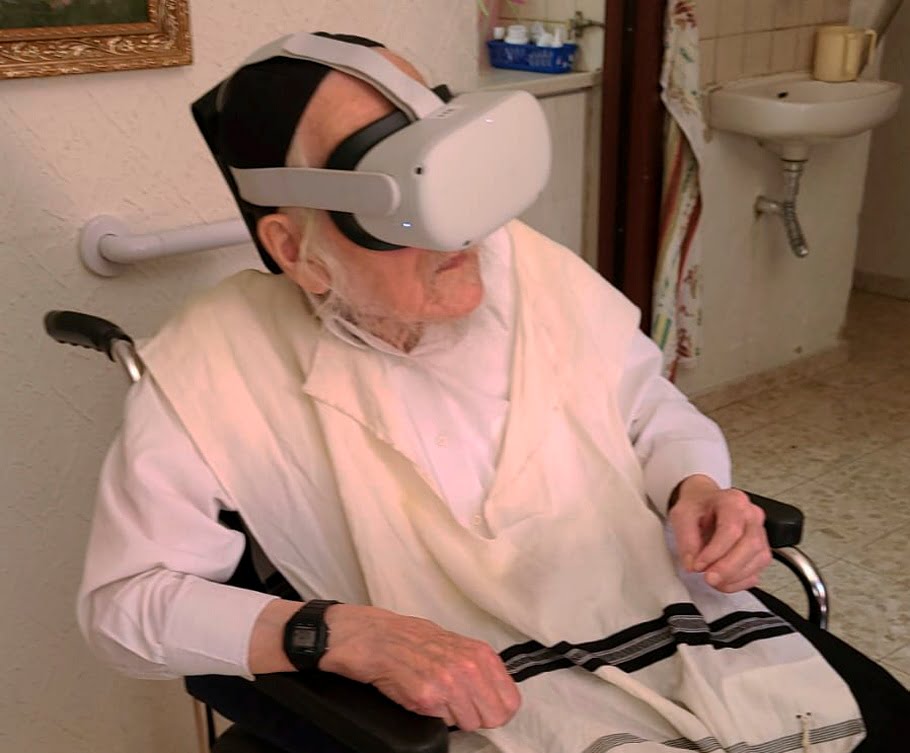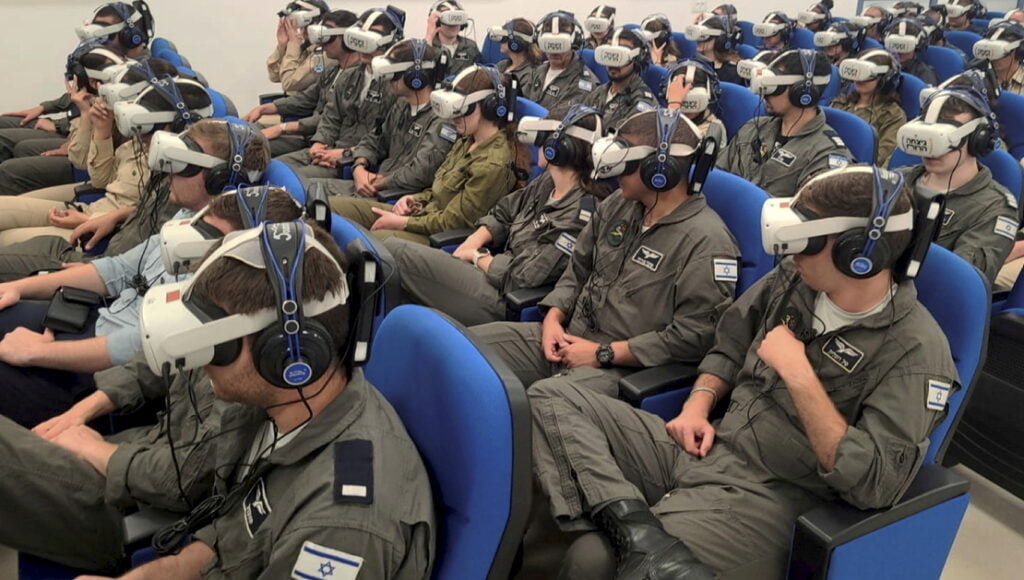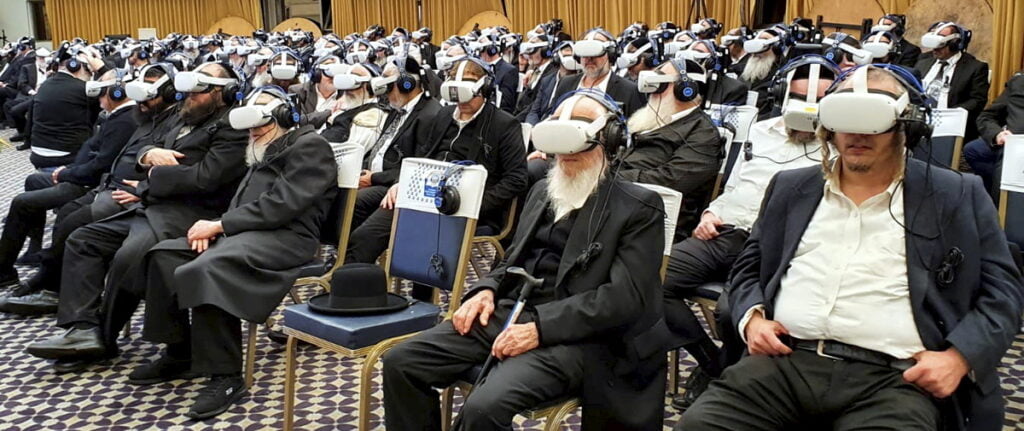Today is Yom HaShoah – Holocaust Remembrance Day – when Israel honors the six million Jews murdered by the Nazis.
Most young people here visit Poland with their high school, to see the concentration camps for themselves and to understand the horrors of what happened there during World War II.
Most, but not all. Such trips have never been part of the culture of the Haredi (ultra-orthodox) communities that account for about an eighth of Israel’s population. And Holocaust studies are not part of the curriculum in their schools or yeshivas.
Click and explore to see the 360-degree video, courtesy Triumph of the Spirit
But three enterprising women from that world are harnessing the power of cutting-edge technology to create “virtual” visits for those who can’t physically go.
Miriam Cohen, Chani Koplowitz and Yuti Neiman, who have been making “kosher movies” with an educational message together for over a decade, were allowed into Auschwitz-Birkenau during the Covid lockdowns to shoot a groundbreaking virtual reality (VR) film.
Audiences wear a VR headset that recreates the experience of actually being there, with a 360-degree view. They can look around, up and down, side to side, throughout the 65-minute movie.

More than 70,000 people, from the Haredi world and far beyond, have so far seen Triumph of the Spirit.
The movie is a tribute to the women’s determination and innovation.
Cohen, a mother-of-six who directed the film, said they managed to get inside Auschwitz to film, even though Steven Spielberg, who directed the acclaimed Schindler’s List (released in 1993) didn’t.
They also mastered the use of VR filming techniques from scratch and ignored those who told them the tech was for gaming and novelty videos, and not for a serious movie.
At the UK premiere in London in January, Matthew Sanders, the education and VR lead for global affairs, at Meta (the Facebook group), paid tribute to their use of the VR tech.
“This is one of the most trailblazing and inspirational projects that I have come across so far,” he told the audience..
Cohen says she always felt she’d missed out on something very important. “When my friends came back from their Poland trip and told us how powerful it was I promised myself that one day I would go,” she said.

What she didn’t realize at the time was that when she did finally visit, she’d be sharing the story wide and far.
They had Rabbi Yisrael Goldwasser, a leading Holocaust lecturer and researcher and a third generation survivor, on board to narrate the film. They had the whole movie mapped out.
Sign up for our free weekly newsletter
SubscribeBut the world had shut down during the Covid pandemic, flights were restricted, and Auschwitz – now a state museum attracting over two million visitors a year – had locked its gates.
After weeks of chasing, being passed from pillar and post, and being told it was completely impossible, Cohen managed to reach the director at Auschwitz-Birkenau.
Persistence and prayer was about to pay off. “She was a Polish woman who also speaks French,” says Cohen.
“I’m from Montreal, so I speak French. I speak to her, she loves me, she loves the idea. But then she says ‘I’m sorry, to film in Auschwitz-Birkenau, that’s not something we allow, with this technology’.
“So I said listen, you’re the last key to my big dream, please help me. And then she said, ‘you know what, send me a brief’.”

Cohen sent the brief, waited anxiously with her fellow film makers. Then she got the phone call.
“’You can come on Monday morning. The museum will be open, only for you, for three days’. It was amazing, we really had a miracle.”
They managed to get there, traveling through Ukraine and elsewhere, in a 27-hour journey, and to shoot the movie.

They were all alone, in a place usually packed with people, and Rabbi Goldwasser, the guide, was worried about being filmed without the live interaction from a group.
But he needn’t have worried. Afterwards he told Cohen: “Usually I’m here with human beings. Today I was here with the neshamos (souls of the dead).”
He grew up with many survivors. “Our viewers are hearing stories that he actually heard from them,” says Cohen. “Through his stories, we’re connecting to the bigger, painful story that happened to the Jewish people.
“The survivors are disappearing every day. Our job now is to take their stories, and to tell them to our kids and to our children, to pass it on as a memory.
“History is something that is outside of you and far from you and something you learn about, but a memory is something you felt, you heard, you smelled, which is inside of you. So that’s our job.”
The movie – together with 200 VR headsets – is available to groups across Israel, and can also be viewed daily in Jerusalem.
Related posts

Rehabilitation Nation: Israeli Innovation On Road To Healing

Israeli High-Tech Sector 'Still Good' Despite Year Of War





Facebook comments